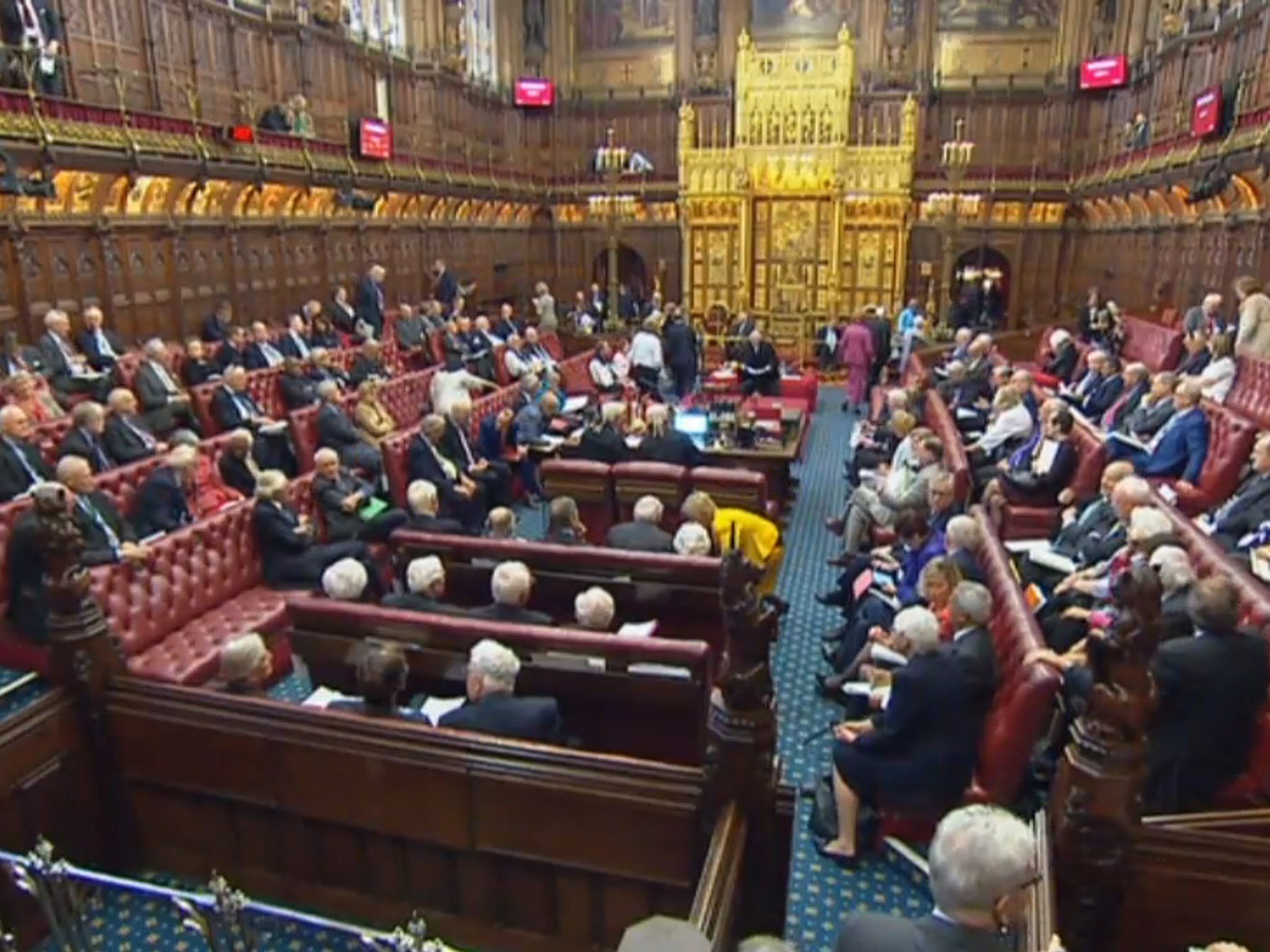Theresa May is playing a risky game by pledging to overturn the Lords' decision on Brexit
Even if the Prime Minister has overemphasised the degree to which the effect of the amendment would hamper Brexit negotiations in advance of a parliamentary vote, plainly she would like to have as much freedom as possible in charting a course

Your support helps us to tell the story
From reproductive rights to climate change to Big Tech, The Independent is on the ground when the story is developing. Whether it's investigating the financials of Elon Musk's pro-Trump PAC or producing our latest documentary, 'The A Word', which shines a light on the American women fighting for reproductive rights, we know how important it is to parse out the facts from the messaging.
At such a critical moment in US history, we need reporters on the ground. Your donation allows us to keep sending journalists to speak to both sides of the story.
The Independent is trusted by Americans across the entire political spectrum. And unlike many other quality news outlets, we choose not to lock Americans out of our reporting and analysis with paywalls. We believe quality journalism should be available to everyone, paid for by those who can afford it.
Your support makes all the difference.How the prime minister must wish that the focus of the media and the opposition was still on Amber Rudd. Instead, after a decisive defeat on the EU Withdrawal Bill in the House of Lords on Monday, Theresa May’s handling of Brexit is very much back in the spotlight.
Under the terms of the bill as proposed, the government had sought to back parliament into a corner, agreeing that MPs could vote on the departure deal negotiated by ministers – but with the caveat that if they rejected what was on offer, Britain would fall out of the EU with no deal at all.
While Ms May and David Davis have argued that this scenario strengthens their hand during the Brexit talks, the provision of such a starkly binary choice has undermined the notion that parliament’s vote is of the meaningful variety.
In this context, the rebellion in the Lords comes as no great surprise. And while peers who voted for the amendment have been painted as Brexit-wreckers by the right-wing media, they can hardly be faulted for putting parliamentary sovereignty above the preferences of the PM.
Despite Monday’s setback, Theresa May is talking a robust game. Her spokesman told journalists that the prime minister was determined to overturn the Lords’ amendment when the legislation returns to the House of Commons later this month.
Ms May’s stance is no less surprising than that of the peers who have put her in this difficult position. Even if she has overemphasised the degree to which the effect of the amendment would hamper negotiations in advance of a parliamentary vote, plainly she would like to have as much freedom as possible in charting a course – both before parliament gets its say, and afterwards.
Nevertheless, the prime minister’s personal preferences are no match for parliamentary arithmetic. When pressed on whether Ms May was confident that she had the numbers to reverse the Lords’ amendment, her spokesman was unable to give a clear answer. In truth, if the matter goes to a vote it will be very tight indeed.
The question will then arise as to whether the prime minister is prepared to turn a vote on the amendment into an effective motion of confidence in her leadership. No 10 made similar noises last week in respect of another amendment introduced in the House of Lords – this time regarding the UK’s continued membership of a customs union.
In either case, asking MPs to pit deeply held principles against party loyalty would be a brave call. Or a foolhardy one. Such a move would, if successful, be likely to secure Ms May’s leadership very considerably and give her the authority to move ahead with negotiations in whatever way she sees fit. But the perils are obvious and success is very far from guaranteed.
Still, Ms May will feel under a certain amount of pressure to be bold. The alternative is to back down, accept the amendments and try to argue that their impact is merely presentational. That might be all well and good if there were only one issue at stake – but if backing down becomes a habit, the prime minister’s authority will be undermined, perhaps irreparably.
Indeed, the government was forced into a climbdown only today in respect of an amendment to the Sanctions and Anti-Money Laundering Bill, which will force British overseas territories to reveal information about the true ownership of companies based within their jurisdiction. With 19 Tories set to vote in favour of the amendment, the government acceded to it – rightly so.
All in all, it feels increasingly that the prime minister is in something of a catch-22: damned at any hint of being forced by “Brexit wreckers” to back down when the EU Withdrawal Bill comes back to the Commons; but at risk of a career-ending defeat if she risks a confidence vote.
But then, the primacy of the UK parliament is what Brexit is all about – isn’t it?
Join our commenting forum
Join thought-provoking conversations, follow other Independent readers and see their replies
Comments